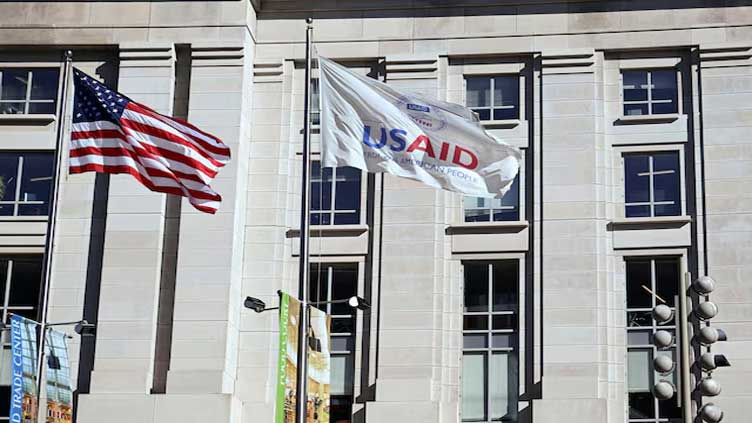Trump administration says it cannot meet court deadline for foreign aid payments

World
Trump administration says it cannot meet court deadline for foreign aid payments
(Reuters) - President Donald Trump's administration said in a court filing late Tuesday night that it "cannot" meet a federal judge's 11:59 p.m. Wednesday deadline for releasing frozen funds to foreign aid contractors and grant recipients, potentially setting the stage for it to openly disobey the order.
The claim came as the administration appealed the order from US District Judge Amir Ali in Washington to the US Court of Appeals for the DC Circuit. The administration asked the appeals court to put Ali's order on hold, opens new tab so it can consider the appeal.
Ali issued the temporary restraining order in response to lawsuits by foreign aid contractors and grant recipients, some of which have said they will have to shut down within days if they are not paid. Temporary restraining orders are meant to prevent irreparable harm while a judge considers the merits of a lawsuit.
Both Ali and a Rhode Island judge overseeing a separate case over a broader federal payment freeze have already castigated the Trump administration for failing to follow their orders. So far, however, the administration has maintained that it was trying in good faith to interpret and comply with the orders.
That could change if Ali's restraining order remains in place and the administration does not make the payments before midnight. In that case, the administration would be openly admitting that it is not obeying a court order.
In support of its request to stay Ali's order, the administration submitted a declaration from Pete Marocco, opens new tab, who is currently acting as deputy administrator of the US Agency for International Development and director of foreign assistance at the State Department, saying that the required payments would take "multiple weeks."
The delay is due largely to new processes put in place by the Trump administration to ensure that payments are legitimate and comply with the administration's policy goals, according to Marocco's declaration. Ali had already ruled that those were not valid grounds to delay payments.
Marocco said that the total amount of payments required by Ali's order was close to $2 billion.
"The lengths that the government is willing to go to flout a court order, all for the goal of ending life-saving humanitarian assistance, is staggering," said Allison Zieve, a lawyer representing two plaintiffs, AIDS Vaccine Advocacy Coalition and Journalism Development Network.
Other plaintiffs include international development company DAI Global and refugee assistance organization HIAS.
Trump, a Republican, ordered a 90-day pause on all foreign aid on his first day in office. That order, and ensuing stop work orders halting USAID operations around the world, have jeopardized the delivery of life-saving food and medical aid, throwing global humanitarian relief efforts into chaos.
The plaintiffs in the lawsuits before Ali, who was appointed by Trump's Democratic predecessor Joe Biden, argue that Trump has violated federal law and the US Constitution by largely dismantling USAID, which was established as an independent agency by Congress in 1998.


